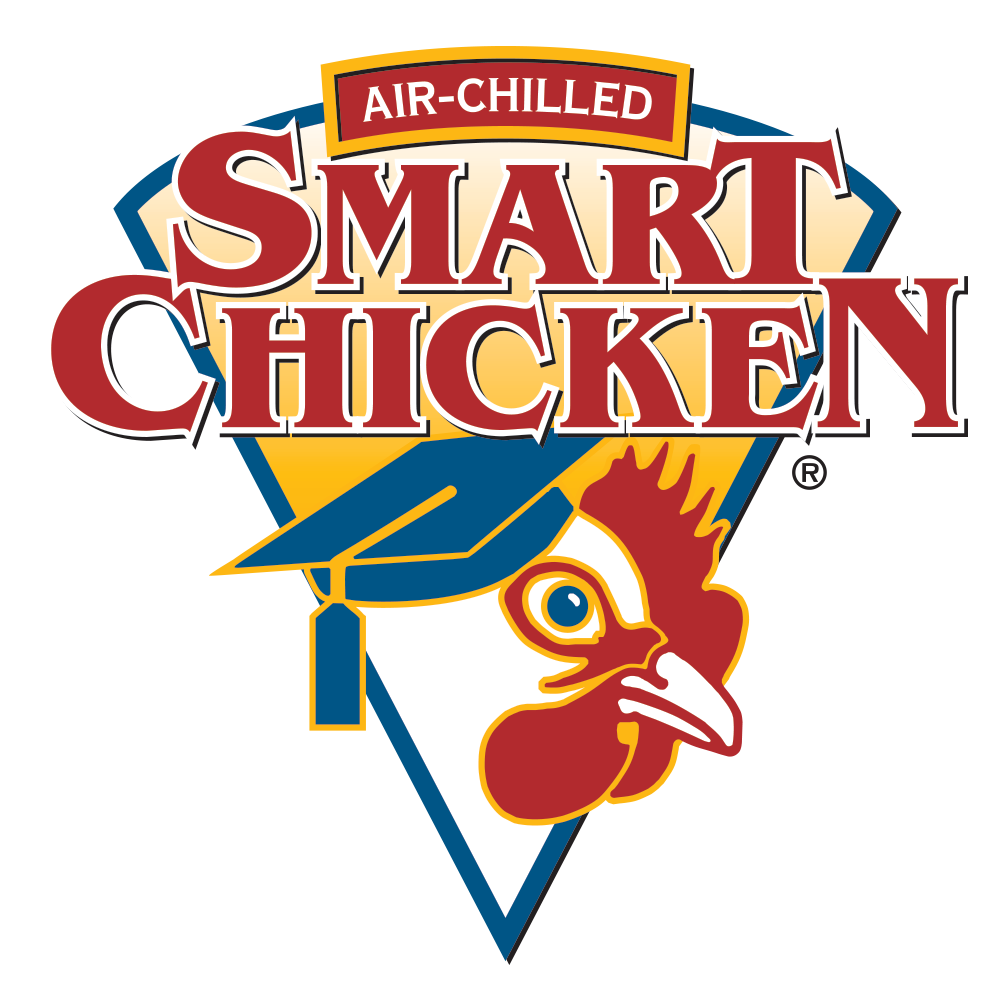The Smart Chicken Diet
Nearly every aspect of raising and processing chickens has an impact on the quality and integrity of the end-product, and nutrition is no exception. The diet for Smart Chickens is formulated to meet the chickens’ natural nutritional requirements.
The Science Behind The Diet
Smart Chicken offers two product lines: No Antibiotics EVER Smart Chicken (packaged in the blue tray) and certified organic Smart Chicken (packaged in the green tray). Both product lines share a very similar diet that consists of corn and soybean meal as well as vitamins and minerals. No antibiotics, growth stimulants, animal by-products, or arsenic additives are ever included in the feed. What differentiates the certified organic birds from our natural, non-organic birds is that corn and soybean meal used in feed rations is certified organic and certified non-GMO in compliance with the Non-GMO Project standards for avoidance of genetically engineered ingredients. (It should also be noted that certified organic birds are free range, in accordance with the National Organic Program).
Formulating a diet that meets all of the birds’ specific metabolic requirements is a sophisticated and ongoing process that starts by evaluating the nutritional content and quality of the raw ingredients (corn and soybean meal). “Tests tell us how much protein, energy, fat, and minerals are present,” explains Smart Chicken Poultry Nutritionist Dana Didde, Ph.D. “I then use a software program that contains each ingredient along with its nutritional content to outline the specifications of the feed ration by noting total protein values, evaluating total and digestible amino acids, energy, fat, moisture, and vitamin and mineral content,” she explains.
The Right Way
Meeting the birds’ environmental and nutritional needs is especially important when raising chickens without the use of antibiotics. Maintaining high standards for the raw ingredients that go into the feed ensures that the chickens receive the nutrition they need, and are constantly in the best possible health. Making sure that the corn and soybean meal are the best possible quality involves monthly testing and communication with the feed mills,. The type of production system that Smart Chicken has requires extreme attention to detail at every step in the cycle to raise a healthy, productive chicken.
Smart Chicken works with growers to ensure that the birds remain in good overall health, continuously evaluating bird performance to make adjustments, and provide care recommendations as needed. Smart Chicken field technicians are out at the farms every day evaluating bird welfare and performance, reporting on barn conditions, bird weights, and general flock health in addition to answering any questions our growers have.
Meat From Chickens Fed Soy Does Not Contain Soy
Soy is a key component in the diet of Smart Chickens, but consumers with allergies and sensitivities need not be concerned, as meat from chickens that eat soy does not contain soy. Smart Chicken Poultry Nutritionist Dana Didde explains: “Gluten and soy allergies are caused by reactions to specific plant proteins. A protein is a string that varies in length of amino acids bound together by peptide bonds. When chickens consume soybean meal as part of a balanced diet, it goes through a variety of mechanical and chemical processes that break it down so the bird can properly utilize its nutrients.” In fact, chickens are not capable of absorbing whole proteins, like soy, and depositing them into the meat; instead, the plant protein must be broken down. The mechanical and chemical breakdown of these proteins yields individual amino acids and peptides for absorption. The chicken then uses these amino acids as building blocks for its own proteins for growth and maintenance.
Chickens effectively break down the soy protein so it’s no longer in its reactive form. As a result, soy in chicken feed is something that consumers with allergies do not need to worry about.

